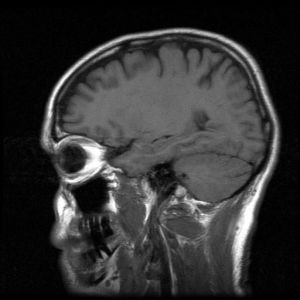Sorensen v. Harbor Bar, LLC, a case from the Supreme Court of South Dakota, involved a claimant who graduated from high school and then enrolled in culinary school. However, she dropped out of culinary school in her first year and moved back home, but found her own apartment. She took a job as server at a restaurant in 2009.
 Court records indicate that, while she was working on New Year’s Eve as a server for her employer, there was a fight, and claimant tried to break it up. One of her co-workers saw her in the middle of the fight, and he tried to help her. At this point he saw another customer hitting a person who was lying on the floor. He pulled the customer off the person on the floor, and he discovered it was claimant who the man was attacking as he laid on the floor. Claimant managed to get up and ran to the bathroom in an attempt to clean herself up. Later on, others in the bar noticed she had two black eyes and was complaining of a headache.
Court records indicate that, while she was working on New Year’s Eve as a server for her employer, there was a fight, and claimant tried to break it up. One of her co-workers saw her in the middle of the fight, and he tried to help her. At this point he saw another customer hitting a person who was lying on the floor. He pulled the customer off the person on the floor, and he discovered it was claimant who the man was attacking as he laid on the floor. Claimant managed to get up and ran to the bathroom in an attempt to clean herself up. Later on, others in the bar noticed she had two black eyes and was complaining of a headache.
The following week, claimant started to suffer from headaches and vomiting. She was taken to the hospital emergency room, where they performed an MRI. It was then determined she had a massive intraventricular hemorrhage in her brain. She was then transferred to another hospital where she underwent brain surgery the following day.
Her brain surgeon performed three different surgeries on her. During the first one, he inserted a temporary drainage tube into her brain. The second surgery involved inserting a permanent drain. The third surgery involved connected blood vessels in her scalp to blood vessels in her brain. It was during this surgery that her doctor she was suffering from what is known as moyamoya disease. It is a vascular disease in the brain. The result is that there is a smaller network of stable blood vessels in the brain making a person more prone to bleeding.
When she filed her claim for workers’ compensation benefits, the commission found that her first two surgeries were necessary due being assaulted on the job, but the third surgery was due her medical condition and not a work-related accident.
The assault was also reported to the police and they took pictures showing she had swelling on her face and the black eyes. Her attacker was arrested. At some point later, there was a report that claimant’s boyfriend had dropped her on the ground and she hit her head. However, the police did not believe this was true, and they thought is was, rather, an attempt by her employer to show the injury was not work related. At the hearing, the workers’ compensation commission determined she was injured on the job in the assault, and she was entitled to compensation for lost wages and medical bills. Her employer appealed this. On appeal, the court affirmed the determination that claimant’s injury was work-related, and she was entitled to compensation.
It should be noted that if you are ever injured on the job, you should seek medical attention immediately and then contact a Boston workers’ compensation attorney.
If you or someone you love has been injured in a Boston work accident, call for a free and confidential appointment at (617) 777-7777.
Additional Resources:
Sorensen v. Harbor Bar, November 11, 2015, Supreme Court of South Dakota
More Blog Entries:
Elevator Mechanic Killed when Falling Down Shaft, Jan. 24, 2015, Boston Workers’ Compensation Lawyer Blog
 Massachusetts Workers Compensation Lawyers Blog
Massachusetts Workers Compensation Lawyers Blog

